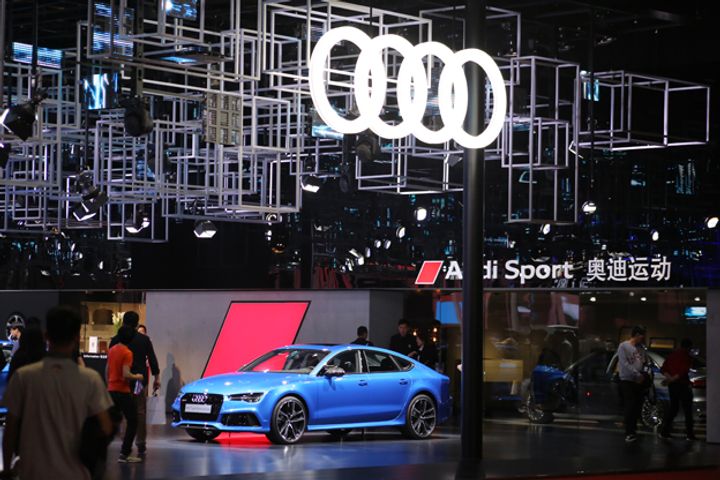 Benz, BMW and Audi Wage China Sales War
Benz, BMW and Audi Wage China Sales War(Yicai Global) Nov. 13 -- Luxury German carmakers are fighting a price war in China as they look to capture the lion's share of the world's biggest auto market and hit targets before the end of the year.
An authorized FAW-Volkswagen dealer in Beijing, which sells Audi models, is offering a cash discount of up to CNY90,000 (USD13,000) on the Audi Q3, an Yicai Global reporter learned on site. Mercedes and BMW dealerships are also offering up to CNY50,000 off GLA-Class models and CNY60,000 off the BMW 3 Series, the reporter found.
"The price of a 3 series was a few thousand cheaper than the already discounted rate during the Double 11 shopping festival," a Beijing auto sales manager surnamed Zhang said, referencing the Chinese discount day celebrated on Nov. 11.
Dealers have had to cut prices in order to meet sales targets, he continued. Policies are changing every day and dealers are trying to rack up sales as the year comes to a close or they will miss out on rebates from manufacturers, Zhang said, noting that typical car prices are now about CNY30,000 less than they were last year.
Prices rose earlier this year after China slapped higher rates on cars imported from the United States, but are now declining in the face of waning market growth, he added, giving the BMW X5 as an example. The sports-utility vehicle sold for CNY600,000 (USD86,300) before the tariffs, CNY660,000 after and is now priced at CNY580,000, Zhang said.
Audi and BMW are cutting prices more than Mercedes, which has controlled prices more effectively, he added, saying manufacturers are shelling out for a portion of the discounts but dealers themselves are taking a hit.
Neck and Neck
Mercedes sales rose 12.7 percent annually to 551,000 over the first 10 months, just ahead of Audi's 538,000 but slower than its 14.4 percent growth rate. BMW has not released its sales data from the period, but publicly available data suggests there is a only a tight gap between the three firms.
"Mercedes increased its prices before, but now Audi, Mercedes and BMW are all cutting prices in the face of a downward trend," Zhang said. "Local governments set purchasing restrictions and Beijing's market share is limited, so dealers with large stores are losing money -- competition is fierce."
With Chinese consumers continually increasing their disposable income, the luxury car segment is occupying a much larger share of the auto market and the price of entry-level models is declining. Luxury models currently make up about 8.9 percent of car sales, compared with 2.7 percent in 2009, public data shows. Sales of high-end models grew around 10 percent over the first three quarters of this year, down from 17 percent in 2017 but still faster than the market average.
"Luxury car sales are still growing as a result of the price cut," Dongshu Cui, secretary general of the China Passenger Car Association, told Yicai Global. "Other segments are also fighting price wars, but the effects are limited. The car market is adjusting to the consumption upgrade and consumers are holding a wait-and-see attitude before buying.
"Competition has been fierce over the past few years, and though price wars have been fought before -- this year's is even tougher," Cui said. "Price wars have usually ended in September and prices have gone back up in October, but there has been no sign of a rebound in prices so far this year."
Editor: James Boynton